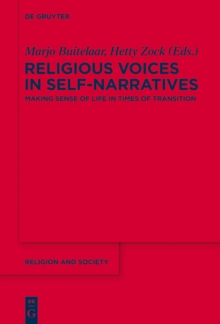
Destabilizing Forces and Resilience in the Current World Crisis: Comparisons of Global Opinion Data and a Middle East Analysis PDF
by Arno Tausch
Part of the Religion and Society series
Description
The present study of destabilizing forces and resilience in the current global crisis, following Russia's invasion of Ukraine on 24 February 2022, is a combination of global comparisons and a study of the Middle East.
The non-Muslim countries that voted for the resolution on Ukraine in the General Assembly represented only 31% of the world's population, while the Muslim countries that voted for the resolution on Ukraine represented 12.38% of the world's population.
With the current shifts in global energy supplies, the Gulf countries have increased their share of Western energy supplies, making the interdependencies in global politics and global energy greater than ever before.
A realistic study of the destabilizing forces and resilience in the current global crisis must therefore be based on a combination of global comparisons and a Middle East survey.
Our analysis of resilience in the Middle East is based on the methodology of international politics and intelligence studies, which is widely used in the literature.
Our assessment of global resilience is based on open data from the World Values Survey and the European Values Survey, the first comprehensive, empirical and multivariate study of global resilience, covering more than 5 billion global inhabitants, representing about 66% of the world's population, in 88 countries and territories, collected between 2017 and 2022.
These high-quality, representative social science survey data, based on excellent sampling techniques and large samples, were analyzed in our research using IBM SPSS Version 29 multivariate statistical software.
For the first time in the global literature, we analyze, among others, very recent data on the willingness to fight for the country in the context of a multivariate factor analytic model that uses a great number of dimensions from our multivariate data to contextualize global willingness to fight for the country.
Our study also compares the performance of Russia and Ukraine according to the sub-components of our parametric factor analytical index of resilience, and also shows how the differences in performance between the two countries are structured.
Russia has an advantage in the subcomponent trust, in the subcomponent absence of xenophobia and racism, in the subcomponent satisfaction and happiness of the population, in the subcomponent willingness to fight for one's country, and in the subcomponent acceptance of egalitarian needs by the higher social classes, while Ukraine has a clear advantage in the subcomponent acceptance of gender justice, in the subcomponent no demoralization, and in the subcomponent respect for human life.
We undertake a similarly structured comparison for resilience in the People's Republic of China and the United States.
There, China is ahead on the trust sub-component, on the acceptance of redistribution by the upper classes, on the Calvinist work ethic, on the willingness to defend, on the respect for human life, on the support for social liberal democracy, on the absence of demoralization and on the happiness of the population.
Quite a clear advantage over the United States! Our analysis also holds dire predictions for the ability of the Western world to maintain the level of support it has hitherto given to the Ukraine.
We also calculated the partial correlation of global support for Vladimir Putin, holding constant the Human Development Index in 2018 and the square of the Human Development Index, also in 2018.
The highest positive statistical relationship with support for Putin is with an economy's dependence on CO2 emissions.
Information
-
Download - Immediately Available
- Format:PDF
- Pages:257 pages
- Publisher:Nova Science Publishers, Inc.
- Publication Date:18/10/2023
- Category:
- ISBN:9798891131873
Information
-
Download - Immediately Available
- Format:PDF
- Pages:257 pages
- Publisher:Nova Science Publishers, Inc.
- Publication Date:18/10/2023
- Category:
- ISBN:9798891131873









